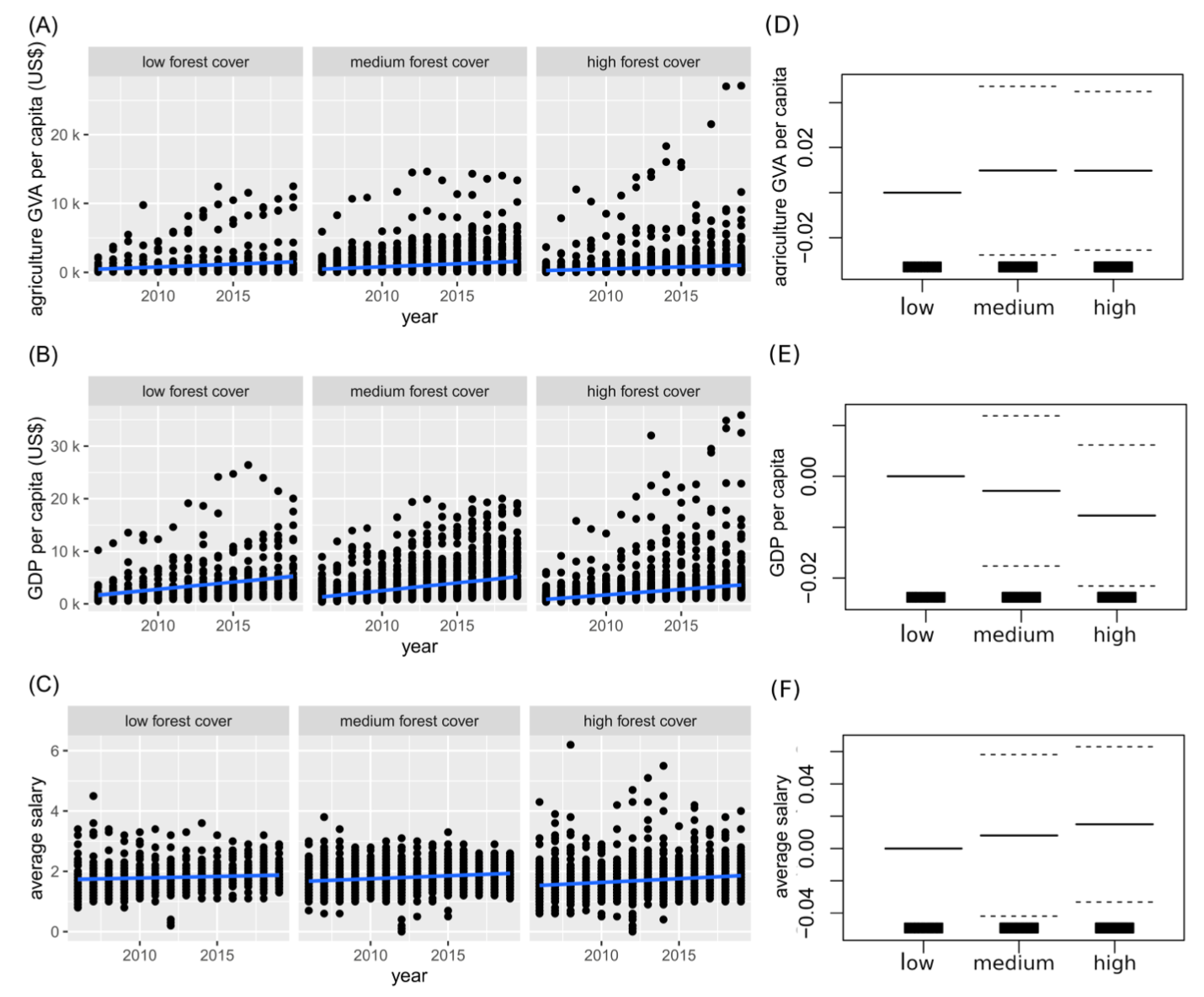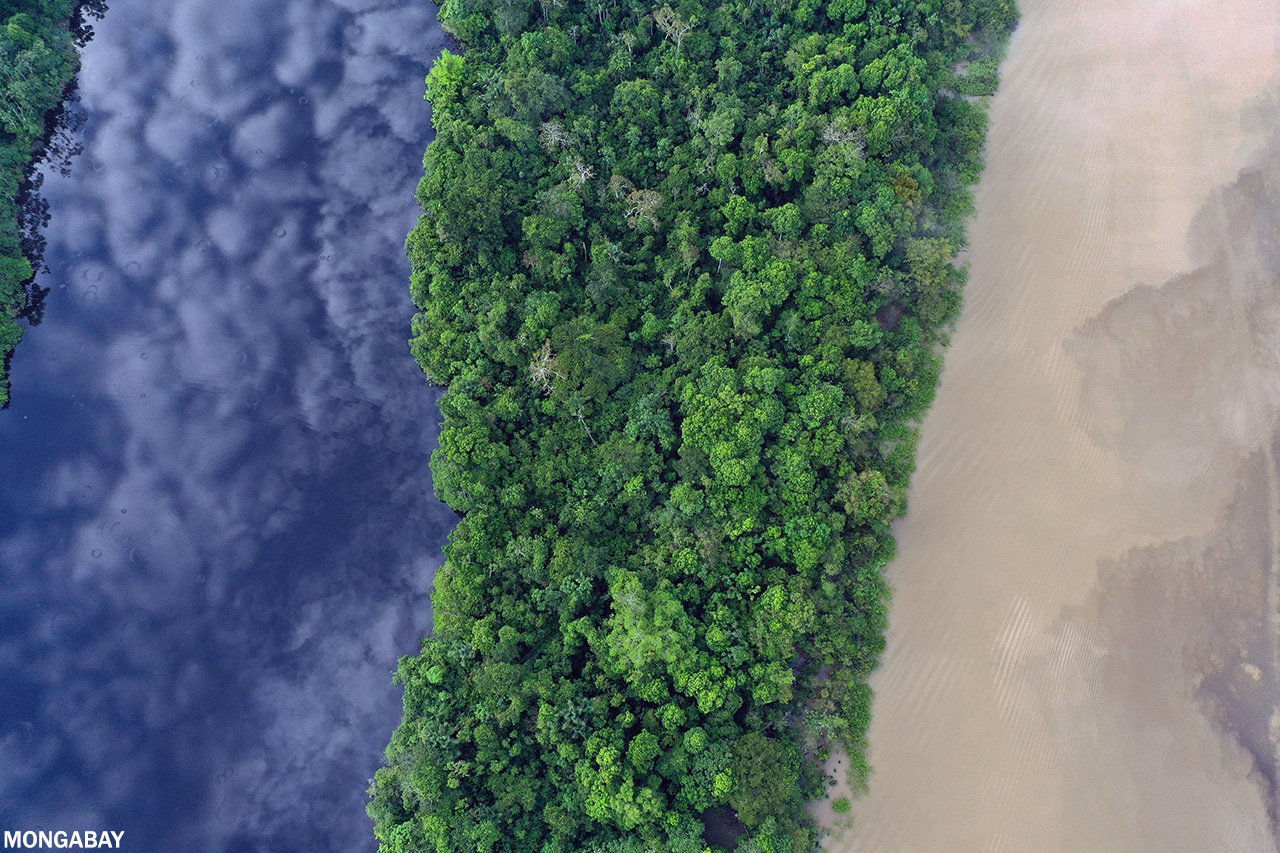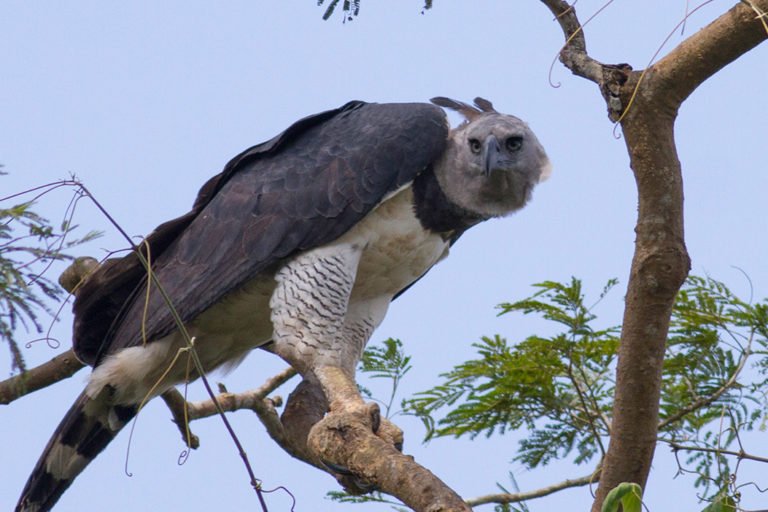- Deforestation proponents in Brazil routinely argue that cutting down the Amazon is an effective way to alleviate poverty. This is especially the case with the Bolsonaro administration, which issued an official statement to the 2021 United Nations Climate Change Conference stating that “where there is a lot of forest there is also a lot of poverty.”
- Ahead of Brazil’s election this coming Sunday, a group of us led by Darren Norris of the Federal University of Amapá decided to see what the data says about links between deforestation and poverty in the Amazon.
- We found no association between forest loss and these economic indicators. Indeed, the economic indicators for municipalities with less than 40% forest cover in 1986 were no different than those of similar municipalities with more than 60% forest cover from 1986 to 2019.
- The finding thus suggests that “deforestation does not necessarily generate transformative and equitable food production systems or lead to poverty alleviation,” as we write.
Deforestation proponents in Brazil routinely argue that cutting down the Amazon is an effective way to alleviate poverty. For example, the Bolsonaro administration’s official statement to the 2021 United Nations Climate Change Conference asserted that “where there is a lot of forest there is also a lot of poverty”, implying that forest cover is inversely correlated to human well-being. Yet solid evidence to support this claim is rarely offered.
Ahead of Brazil’s election this coming Sunday, which pits Jair Bolsonaro, who has presided over a steep rise in deforestation, against Luiz Inácio Lula da Silva, who oversaw a sharp drop in Amazon forest clearing and has made saving the Amazon a key part of his campaign, a group of us led by Darren Norris of the Federal University of Amapá decided to see what the data says about links between deforestation and poverty in the Amazon. Specifically we wanted to see whether the arguments advanced by deforestation proponents hold up to scrutiny.
To do this, we looked at forest change and economic indicators for nearly 800 municipalities covering almost five million hectares in the Brazilian Amazon from 2002 to 2019. We used average salary, the existence of sanitation plans, and internet connectivity as the economic indicators for evaluating this question. This is not a comprehensive, but it is a serviceable proxy for economic development.
We found no association between forest loss and these economic indicators. Indeed, the economic indicators for municipalities with less than 40% forest cover in 1986 were no different than those of similar municipalities with more than 60% forest cover from 1986 to 2019. The finding thus suggests that “deforestation does not necessarily generate transformative and equitable food production systems or lead to poverty alleviation,” as we write.

Therefore the Bolsonaro administration’s claim that Brazilians in the Amazon cannot escape poverty without clearing forests does not seem to be a valid argument based on economic data alone.
Left unevaluated here are the ecological services afforded to local communities by healthy and productive forests. Factoring in these benefits, which are often undervalued, would further diminish the case being made by deforestation proponents.

The paper, titled “Cutting down trees does not build prosperity: On the continued decoupling of Amazon deforestation and economic development in 21st century Brazil”, will be published shortly in the journal Tropical Conservation Science. A preprint version is available on EarthArXiv.
CITATION:
-
Darren Norris, Terciane Sabadini Carvalho, Angela M. Guerrero, Maria Isabel Sobral Escada, Ane Alencar , Liz Kimbrough, and Rhett A. Butler. “Cutting down trees does not build prosperity: On the continued decoupling of Amazon deforestation and economic development in 21st century Brazil.” Tropical Conservation Science (October 2022). doi.org/10.31223/X51S8P
Disclosure: Rhett Butler was a co-founder of the journal Tropical Conservation Science in 2008 but turned over control and all management of the journal in 2016. He does not have any influence on the journal’s submission or editorial processes.
Portuguese pre-print of Norris et al 2022.











